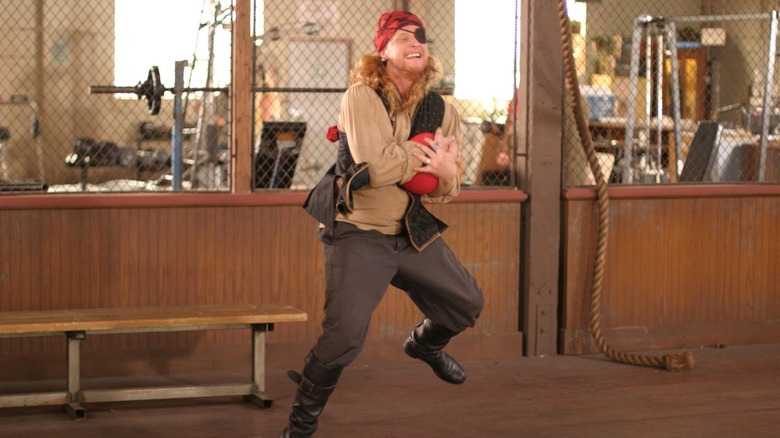MPA Claims Piracy Costs Theaters $1 Billion Per Year – And They Have A Plan To Stop It [CinemaCon 2024]
CinemaCon is currently going on in Las Vegas, with theater owners and members of the industry on hand to examine the state of the movie business. One issue that's already come up in a big way is piracy. Motion Picture Association (MPA) Chairman and CEO Charles Rivkin took the stage during the State of the Industry presentation on Tuesday and spoke passionately about the matter of people pirating films. Rivkin boldly claimed that piracy costs theaters an estimated $1 billion at the box office annually right now. But the MPA isn't content to just let that continue, as it's also announced a plan to help fight the problem.
Rivkin revealed that the MPA now plans to work with Congress to enact site-blocking legislation in the U.S. This is not the first time that such legislation has been proposed, but as Rivkin pointed out, more than 60 countries around the world have adopted such measures. "Site blocking works," he declared while adding that "it substantially decreases piracy." In theory, if that $1 billion figure is correct, the total global box office could have hit $10 billion in 2023 as opposed to $9 billion. It may not be as simple as that, but we are talking about a huge slice of the pie here.
Rivkin also had strong words about those who operate piracy websites. "The perpetrators are real-life mobsters," he said before adding, "Many of whom engage in child pornography, prostitution, drug trafficking, and so many other societal ills." Rivkin then explained what, in practice, such legislation would accomplish:
"It allows all types of creative industries — film and television, music and book publishers, sports leagues and broadcasters — to request, in court, that internet service providers block access to websites dedicated to sharing illegal, stolen content."
'There are no gray areas here'
The idea is that, legally, it could be requested that internet service providers block access to websites that feature stolen content. Rivkin was sure to highlight that this wouldn't impact legitimate businesses. He specifically highlighted the website Fmovies, which is one of the world's biggest movie piracy sites. According to Rivkin, 1/3 of the site's traffic comes from the U.S., partially because other countries have employed site-blocking measures.
"There are no gray areas here," Rivkin said definitively. A similar fight around site-blocking measures happened in 2012 in the U.S. Arguments at the time came up suggesting that it would "break the internet" or stifle free speech. Rivkin countered by saying, "Examples of free speech violations are practically non-existent."
Much has changed in the last 12 years. Between streaming and movies hitting PVOD much earlier, clean copies of pirated films can be found online with ease. This was a problem with "Tenet" in 2020, it was a problem with "Black Widow" in 2021, and it's been a problem with virtually every other big movie since. Rivkin tried to drive home his point by pointing to a world where piracy is no longer as big of an issue:
"Imagine if they could only watch the latest great movies at their intended destination, your great theaters"
Granted, site-blocking would by no means guarantee that those same people would then buy a ticket at a theater or pay for a movie on VOD instead. There are also nuanced parts of the conversation to consider here. Mike Flanagan has come out in support of bootleg physical releases of his shows like "Midnight Mass," which currently only exist on Netflix. In such cases, it can be argued as a form of preservation.
That's not as much of an issue with big blockbuster movies. It's a complicated situation with much to consider. The MPA isn't content to just accept these losses though — it's going to try and do something about them.

